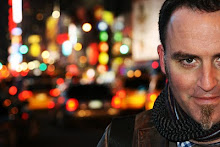It’s funny what we tell our kids, isn’t it? It must be very difficult as a child to work out fact from fiction. That said, I’m always telling my friends off for not bringing their children up to believe in magic. “What is life without Santa Claus?” I ask them, remembering the magic of Christmas morning and the complicated narratives I created when I’d started to realise Santa didn’t exist but was desperate not to let him go! I’d even managed to convince myself that there must be a local committee of people who selected a Santa each year to represent the town. This was still somehow more believable than the idea that my parents were spending huge sums of money on me altruistically.
As I walked down to the tube this morning, I passed a mother talking to her son: “no darling, giants live forever...” And I wondered at which point her son would realise that she was talking bull shit! Actually, I think children already know. You see them looking at their parents with that “I know you’re lying, but I really want this to be true” sort of look. It’s all harmless enough... Cut to the child having night terrors twelve hours later! When it’s dark, those charming fantasy conversations suddenly take on a far more sinister quality, when the shadows of the trees outside seem to caress your window and the house begins to groan and rattle as it settles down for the night!
Complicated things: the minds of children.
It’s Eurovision week this week. Gay men all over the world are dusting off their collections of flags, and chopping crudités. Llio asked me last night why Eurovision was so popular with gay people and I had to really think about my answer. Gay men love escapism and glamour, and I guess Eurovision has become a thing that gay men “do”. But it goes far deeper than that. Eurovision is OUR contest. I don’t just blithely call it the gay men’s World Cup. Yes, we know it’s silly, and camp, and it’s certainly not high art, but it matters deeply to us, because it carries an important message: namely that it’s okay to be different. And it’s this core message which hits us at a very young age, long before we realise WHY we’re different.
I am one of three gay brothers, only one of whom I grew up with, and the one thing which unites us all is Eurovision. All three of us loved the contest, long before we realised we were gay.
And, of course, Eurovision has been a platform for LGBT grand statements for many years, from Paul Oscar and Dana International in the 90s, to Conchita Wurst in 2014, and now, of course, Ireland, who have chosen to accompany this year’s entry with two gay lads dancing out a charming love story. I was a little horrified to hear, therefore, that rainbow flags were being confiscated at the stadium on Thursday’s semi final, although very grateful to the EBU for removing China’s right to broadcast the contest after they tried to censor Ireland’s song.
The China issue proves that Eurovision is still surprisingly powerful and not afraid to flex its muscles and, as a result, its fiercely-guarded message of unity, hope and love can be deeply threatening to oppressive regimes. It was the one thing which terrified Russia during the Cold War, to the extent that they organised their own competition for communist countries.
Long may it last!
Friday, 11 May 2018
Subscribe to:
Post Comments (Atom)

No comments:
Post a Comment
Note: only a member of this blog may post a comment.